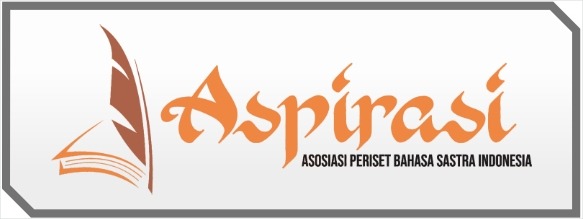The Cognitive Style Inventory, Reading Habit, and Reading Achievement Among Undergraduate EFL Students
DOI:
https://doi.org/10.61994/jee.v2i1.448Keywords:
Correlation, Cognitive style inventory, Reading habit, Reading achievementAbstract
Reading requires the ability to detect and evaluate words inside sentences, as well as extract underlying information. This research focused on finding out whether or not there was any significant correlation among cognitive style inventory, reading habit and reading achievement of undergraduate EFL students at Tridinanti University. This study used quantitative design with correlational approach and involved 65 students as the sample through total sampling. The data were collected by using cognitive style inventory questionnaire, a reading habit questionnaire, and a reading achievement test. The data were analyzed by using Rank-Spearmen to investigate the correlation among cognitive style inventory, reading habits and reading achievement. After analyzing and calculating the data, it was found that there was significant correlation among cognitive style inventory, reading habits and reading achievement of undergraduate EFL students at Tridinanti University, since the p-value (0,301) was higher than r-table (0,244). It means that, Ho (null hypothesis) was rejected and Ha (alternative hypothesis) was accepted. The degree of correlation coefficients was weak category.
References
Andrianatos, K. (2019). Barriers to reading in higher education: Rethinking reading support. Reading & Writing, 10(1), 1-9. https://dx.doi.org/10.4102/rw.v10i1.241
Asif, M. & Yang, L.(2021).An investigation of the reading culture: the role of libraries to promote reading culture in Pakistan. Journal of Language and Cultural Education,9(3) 40-62. https://doi.org/10.2478/jolace-2021-0018
Baba, J., & Affendi, F. R. (2020). Reading Habit and Students' Attitudes towards Reading: A Study of Students in the Faculty of Education UiTM Puncak Alam. Asian Journal of University Education, 16(1), 109-122. https://doi.org/10.24191/ajue.v16i1.8988
Bano, J., Jabeen, J., & Qutoshi, S. B. (2018). Perceptions of teachers about the role of parents in developing reading habits of children to improve their academic performance in schools. Journal of Education and Educational Development, 5(1), 42-59.
Bashir, I., & Mattoo, N. H. (2012). A Study-on-Study Habits and Academic Performance among Adolescents (14-19) Years. International Journal of Social Science Tomorrow, 1, 1-5.
Brunfaut, T., Kormos, J., Michel, M., & Ratajczak, M. (2021). Testing young foreign language learners’ reading comprehension: Exploring the effects of working memory, grade level, and reading task. Language testing, 38(3), 356-377. https://doi.org/10.1177/0265532221991480
Butterfuss, R., & Kendeou, P. (2018). The role of executive functions in reading comprehension. Educational Psychology Review, 30, 801-826. https://doi.org/10.1007/s10648-017-9422-6
Castles, A., Rastle, K., & Nation, K. (2018). Ending the reading wars: Reading acquisition from novice to expert. Psychological science in the public interest, 19(1), 5-51. https://doi.org/10.1177/1529100618772271
Chatviriyawong, R., & Chattiwat, W. (2018). Development of Reading Instructional Model through Task Based Approach Integrating with Collaborative Strategic Reading (CSR) and SCAMPER Technigues to Enhance Creative Thinking of Vocational Diploma Students (Doctoral dissertation, Silpakorn University).
Creswell J. W. & Guetterman T. C. (2019). Educational research: planning conducting and evaluating quantitative and qualitative research (6th ed.). Pearson Education.
Department for Education and Skill. (2005). Understanding Reading Comprehension:2. Guidance curriculum and standards. HMSO, The Licensing Division, St Clements: Raising Standard.
Elder, L., & Paul, R. (2020). Critical thinking: Tools for taking charge of your learning and your life. Foundation for Critical Thinking.
Fraenkel, J. R., Wallen, N. E., & Hyun, H. H. (2012). How to design and evaluate research in education (8th ed.). New York: McGraw-Hill.
Frederick, S. (2005). Cognitive reflection and decision making. Journal of Economic Perspectives, 19(4), 25–42. https://doi.org/10.1257/089533005775196732
Goldenberg, C. (2020). Reading Wars, Reading Science, and English Learners. Reading Research Quarterly, 55(S1), S131–S144. https://doi.org/10.1002/rrq.340
Greenleaf, C., Schoenbach, R., Friedrich, L., Murphy, L., & Hogan, N. (2023). Reading for understanding: How reading apprenticeship improves disciplinary learning in secondary and college classrooms. John Wiley & Sons.
Hamedi, S. M., Pishghadam, R., & Fadardi, J. S. (2020). The contribution of reading emotions to reading comprehension: The mediating effect of reading engagement using a structural equation modeling approach. Educational Research for Policy and Practice, 19(2), 211-238. https://doi.org/10.1007/s10671-019-09256-3
Hoover, W. A., & Tunmer, W. E. (2020). The cognitive foundations of reading and its acquisition. Berlin, Germany: Springer International Publishing.
Indriani. (2019). Correlation Between Reading Habit and Reading Comprehension Achievement of English Department Students of IAIN Palangka Raya. Palangka Raya : IAIN Palangka Raya.
Janthong, J., & Sripetpun, W. (2010). English reading comprehension and reading habit improvement: Use of questioning technique. In The 2nd Internasional Conference on Humanities and Social Sciences (Vol. 9, No. 1, pp. 1-31). http://fs.libarts.psu.ac.th/research/conference/proceedings-2/3pdf/009.pdf
Khan, R. M. (2019). Comparative Analysis of Achievements of Students Taught French Reading Comprehension with Cooperative Learning and Communicative Language Teaching in North West Region Cameroon.
Le, T. T. H., Tran, T., Trinh, T. P. T., Nguyen, C. T., Nguyen, T. P. T., Vuong, T. T., ... & Vuong, Q. H. (2019). Reading habits, socioeconomic conditions, occupational aspiration and academic achievement in Vietnamese junior high school students. Sustainability, 11(18), 5113. https://doi.org/10.3390/su11185113
Lone, F.A. (2011). Reading Habits of Rural and Urban College Students in the 21th Century. Library Philosophy and Practice (e-journal). 709. https://digitalcommons.unl.edu/libphilprac/709
Martin, L.P. (1998). The Cognitive Style Inventory. The Pteiffer Library, 8, (2), 1- 12.
Muhamad, S. N., Latiff Azmi, M. N., & Hassan, I. (2020). Reading interest and its relationship with reading performance: A study of English as second language learners in Malaysia. Humanities & Social Sciences Reviews eISSN, 2395-6518. https://dx.doi.org/10.2139/ssrn.3524723
Mwangi, F. G. (2019). Pedagogical Techniques That Bolster Learners’acquisition Of Extensive Reading Habits In Secondary Schools In Laikipia County, Kenya (Doctoral dissertation, KENYATTA UNIVERSITY).
Nunan, D. (2006). Practical English Language Teaching: Young Learners. Singapore: McGraw Hill.
Odabaş, H., Odabaş, Z. Y., & Polat, C. (2008). Üniversite Öğrencilerinin Okuma Alışkanlığı: Ankara Üniversitesi Örneği. Bilgi Dünyası, 9(2), 431-465. https://doi.org/10.15612/BD.2008.313
Palani, K. K. (2012). Promoting reading habits and creating literate society. Researchers world, 3(2), 90.
Pang, E. S., Muaka, A., Bernhardt, E. B., & Kamil, M. L. (2003). Teaching Reading. Educational Practices Series. Switzerland: The International Academy Education, IAE
Patel, M.F., & Jain, P. M. (2008). English Language Teaching. Jaipur: Sunrise.
Poedjiastutie, D. (2018). Indonesian school students reading habits: A sociocultural perspectives. International Journal of English Language and Literature Studies, 7(4), 94-100.
Gilakjani, A. P., & Sabouri, N. B. (2016). Learners' Listening Comprehension Difficulties in English Language Learning: A Literature Review. English language teaching, 9(6), 123-133.
Sakina, P. N., Dewi, D. S., & Putri, A. (2017). The Correlation between Cognitive Styles and Student’s Reading Comprehension. ANGLO-SAXON: Jurnal Ilmiah Program Studi Pendidikan Bahasa Inggris, 8(1), 68-74.
Satriani, E. (2019). Online Reading Resources Among EFL Students: Do They Promote Reading Habit?. J-SHMIC: Journal of English for Academic, 6(1), 8-17.
Shen, L. B. (2006). Computer technology and college students’ reading habits. Chia-nan annual bulletin, 32, 559-572.
Smith, R., Snow, P., Serry, T., & Hammond, L. (2021). The Role of Background Knowledge in Reading Comprehension: A Critical Review. Reading Psychology, 42(3), 214–240. https://doi.org/10.1080/02702711.2021.1888348
Sudjana. (2017). Metode Statistika. Bandung: PT Tarsito.
Tiara, Z. A. U. (2024). The Implementation of Picture Storybook to Improve Reading Comprehension For Young EFL Learners. Undergraduate Thesis UNIVERSITAS LAMPUNG.
Toplak, M.E., West, R.F., Stanovich, K.E. (2011). The cognitive reflection test as a predictor of performance on heuristic-and-biases tasks. Mem Cognition, 39, 1275-1289.
Vuong, Q. H., Nguyen, M. H., & Le, T. T. (2021). Home scholarly culture, book selection reason, and academic performance: Pathways to book reading interest among secondary school students. European Journal of Investigation in Health, Psychology and Education, 11(2), 468-495.
Wichanee, T., & Thongrin, S. (2022). Cultivating critical consciousness of struggling readers in a culturally diverse EFL context (Doctoral dissertation, Thammasat University).
Zwiers, J. (2004). Building Reading Comprehension Habits in Grades 6-12. Sanfransisco, CA: International Reading Association.
Downloads
Published
Issue
Section
License
Copyright (c) 2024 Hastin Yoka Ariyani, Darmawan Budiyanto, Jenny Elvinna Manurung

This work is licensed under a Creative Commons Attribution-ShareAlike 4.0 International License.

Journal of English Education by https://jurnal.dokicti.org/index.php/JCSS/index
is licensed under a Creative Commons Attribution-ShareAlike 4.0 International Licensel
















